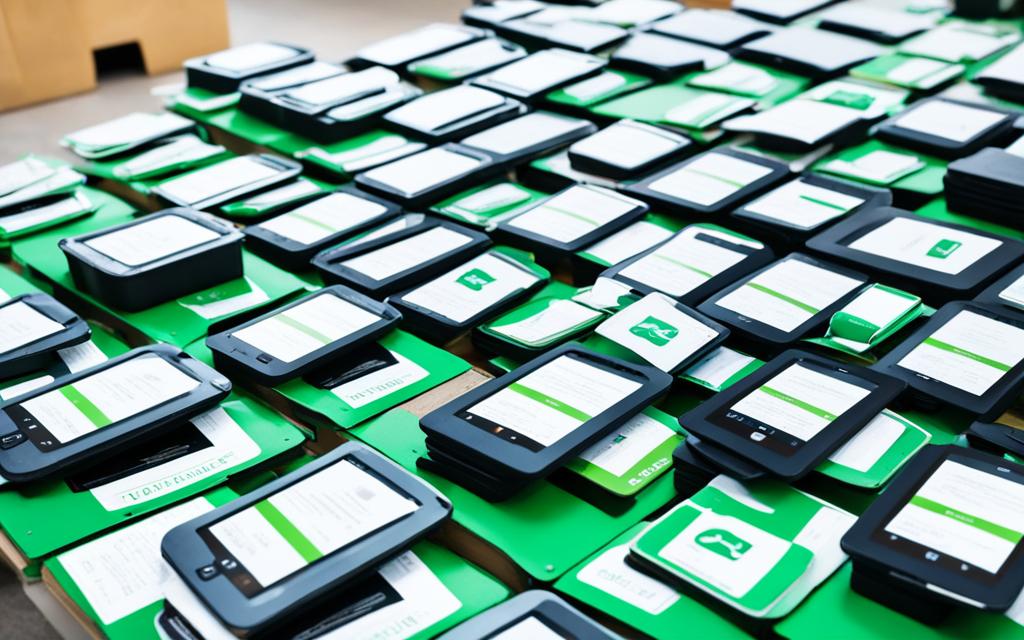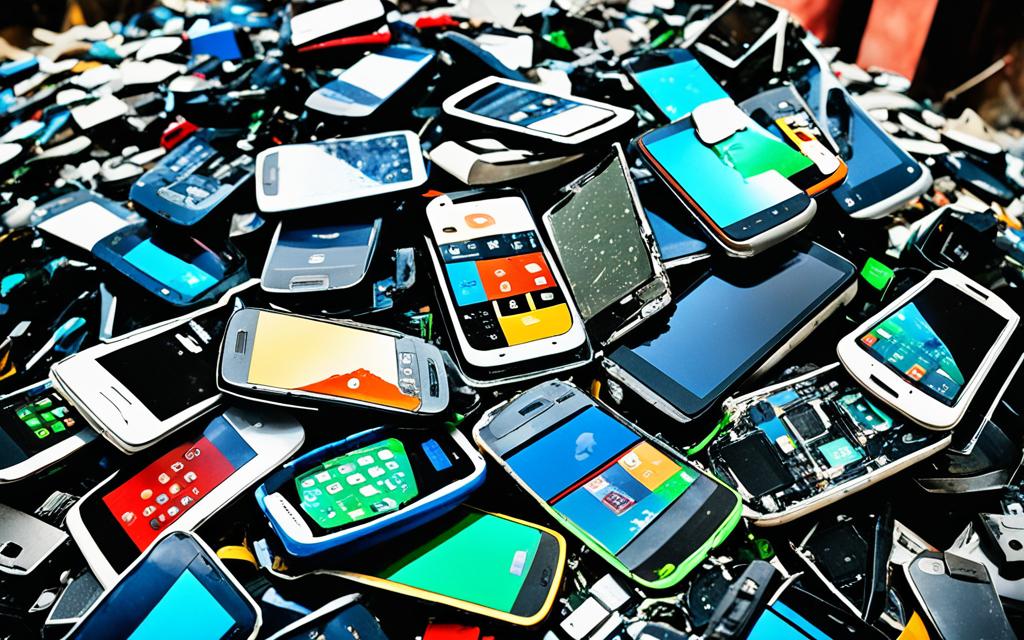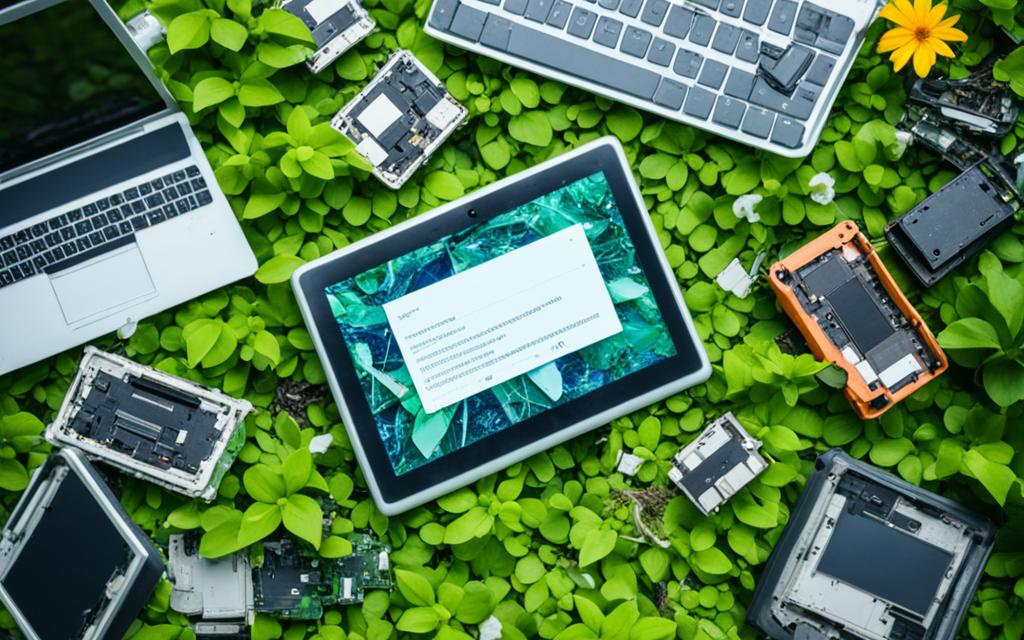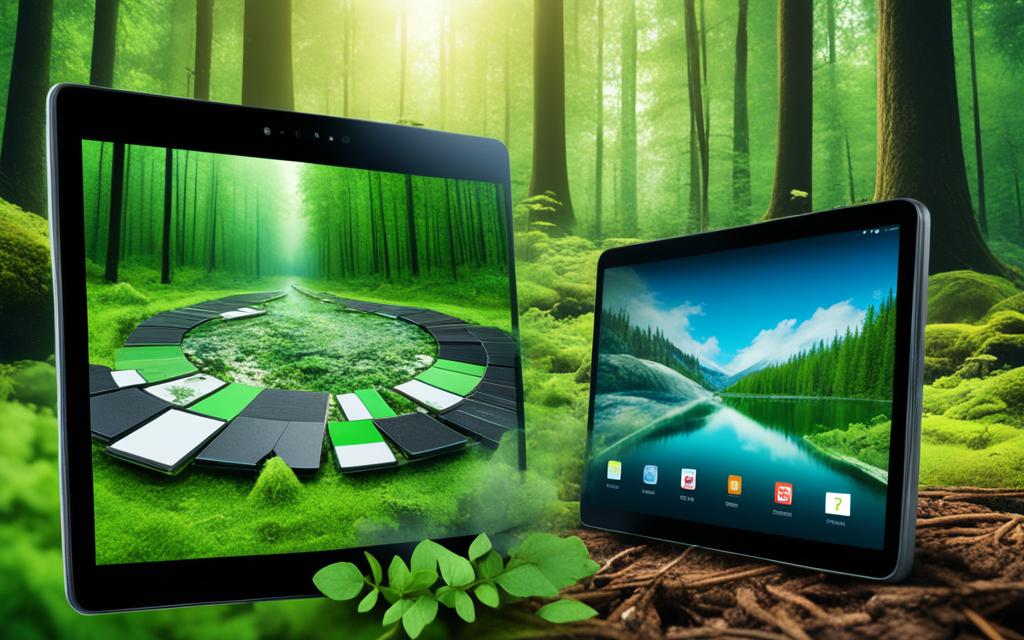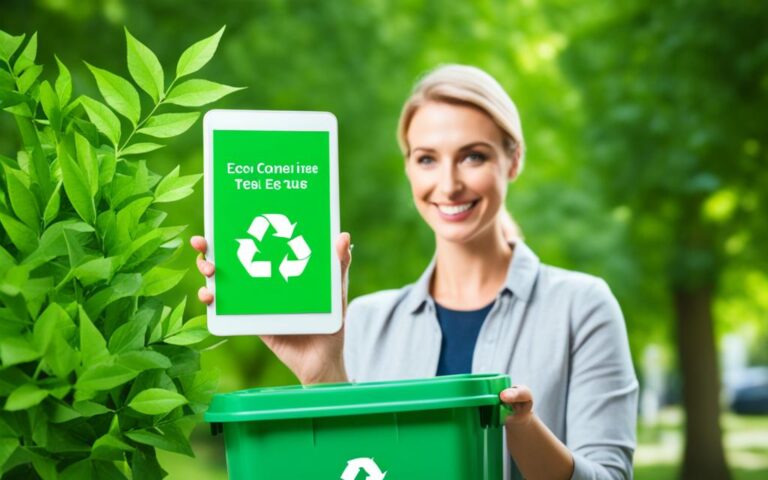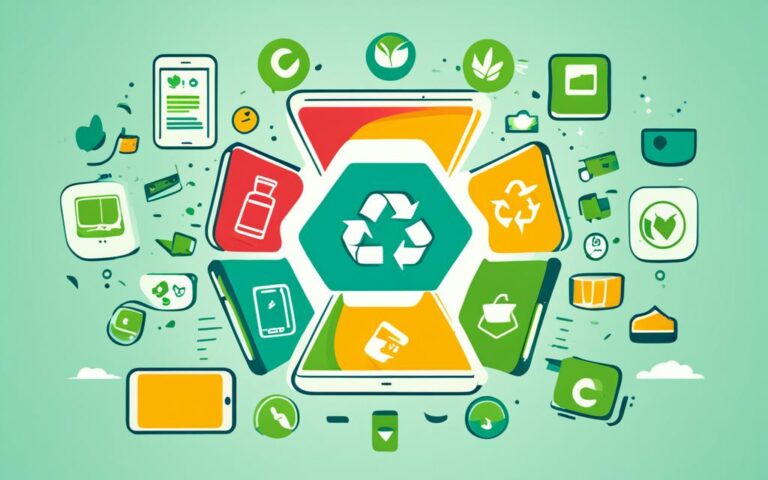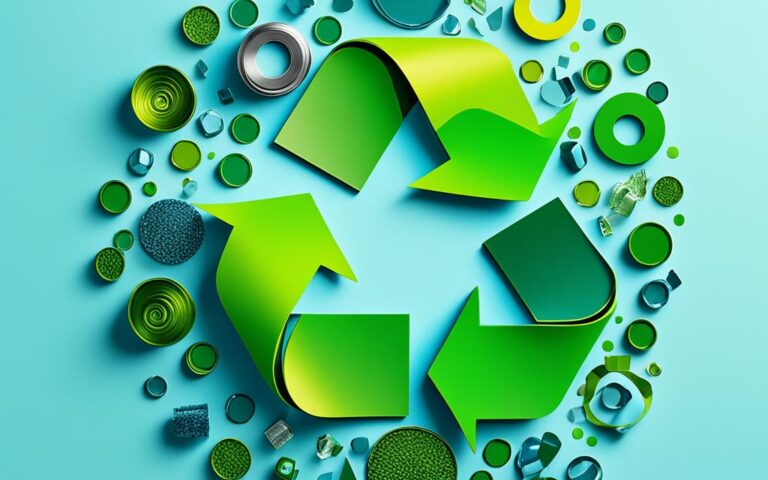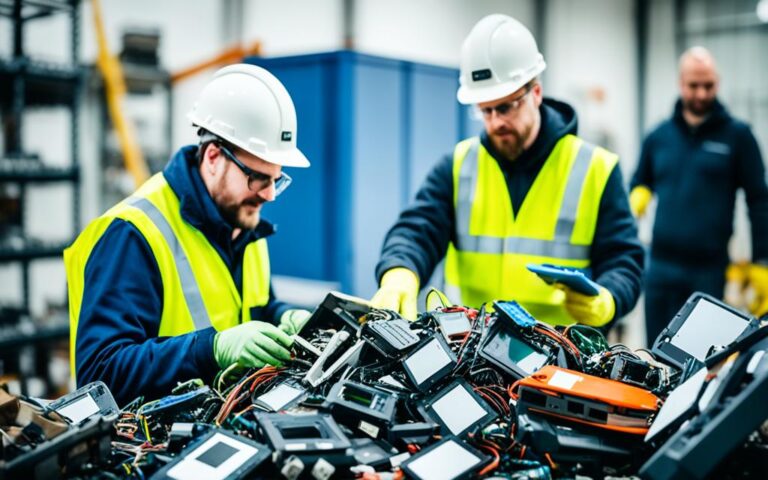The Environmental Benefits of Tablet Recycling
Recycling electronics, including tablets, is crucial for protecting the environment. Improper disposal of electronic waste can lead to serious environmental risks, including the release of toxic substances into the soil, air, and water. This can harm ecosystems and human health. Additionally, the sheer volume of e-waste being generated is a major challenge, with millions of tons being discarded each year. Increased recycling of tablets and other electronic devices can help conserve natural resources, reduce energy consumption, prevent landfill formation, and control air pollution.
By recycling tablets, we can make a significant positive impact on the environment. The process of tablet recycling not only safeguards our natural resources but also helps combat the growing problem of electronic waste. Through recycling, we can prevent the release of harmful chemicals and toxins into the environment, reducing air and water pollution. Additionally, by reusing valuable materials like copper and aluminum found in tablets, we can conserve energy and reduce the need for resource-intensive mining operations.
Furthermore, tablet recycling plays a crucial role in preventing the formation of landfills. Landfills can have detrimental effects on the environment, releasing toxins into the soil and contributing to pollution. By recycling tablets, we can minimize the amount of electronic waste that ends up in landfills, thereby protecting our ecosystems and creating a healthier planet for future generations.
Overall, tablet recycling offers numerous environmental benefits. It helps preserve natural resources, reduce energy consumption, prevent pollution, and encourage the transition towards a more sustainable future. By choosing to recycle our tablets, we can all make a significant contribution to safeguarding our planet for ourselves and future generations.
How Recycling Electronics Helps the Environment
Recycling electronics is not just beneficial but essential for mitigating the adverse environmental impacts of e-waste. Electronic devices, including tablets, contain toxic substances like lead, mercury, and cadmium, which can contaminate the soil and groundwater if not properly disposed of. This contamination poses significant risks to both land and sea animals, as well as humans who come into contact with these pollutants.
By recycling e-waste, we can prevent the release of these harmful chemicals into the environment, reducing air and water pollution. This is crucial for safeguarding our ecosystems and protecting human health. Moreover, recycling electronics plays a vital role in conserving energy and natural resources.
Valuable materials like copper and aluminum, which are abundant in electronic devices, can be reused through the recycling process. This not only reduces the need for new resource extraction but also minimizes the energy required for manufacturing. By giving these materials a second life, recycling electronics helps to reduce greenhouse gas emissions and combat climate change.
Furthermore, recycling electronics helps address the rising problem of e-waste accumulation. Globally, millions of tons of e-waste are discarded each year, and much of it ends up in landfills. This not only takes up valuable space but also poses a threat to the environment. E-waste in landfills can result in the leaching of toxic substances, polluting the soil and water. By recycling electronics, we can divert e-waste from landfills and prevent further environmental degradation.
Take a moment to visualize the environmental impact of recycling electronics through the following table:
| Environmental Benefits of Recycling Electronics | Environmental Impacts of E-waste |
|---|---|
| Prevents the release of toxic substances into the soil, air, and water | Contamination of soil and groundwater with toxic substances |
| Reduces air and water pollution | Harmful effects on land and sea animals, as well as humans |
| Conserves energy and natural resources | Extraction of new resources, energy-intensive manufacturing processes |
| Helps combat climate change by reducing greenhouse gas emissions | Increase in greenhouse gas emissions due to resource extraction and manufacturing |
| Prevents e-waste from ending up in landfills | Accumulation of e-waste in landfills, leaching of toxic substances into the environment |
Through the responsible recycling of electronics, we can make a positive impact on the environment and contribute to a more sustainable future. Let’s ensure that recycling becomes a priority, not just for individuals but also for businesses and governments, to protect our planet for generations to come.
The Importance of Recycling Tablets
Tablets, like other electronic devices, should be recycled to minimize their environmental impact. By recycling tablets, valuable materials can be recovered and reused, reducing the need for mining and refining new resources. Many of the metals used in tablets are rare earth metals that are in limited supply, making their recycling crucial for preserving natural resources. Furthermore, recycling tablets prevents the formation of landfills, which can release toxins into the soil and contribute to pollution. Recycling also helps control air pollution by reducing the need for mining operations and the associated release of dust and pollutants into the air.
The Benefits of Tablet Recycling
When you recycle your old tablets, you contribute to a more sustainable future. Here are some key benefits of tablet recycling:
- Conserving Natural Resources: Recycling tablets reduces the demand for new resources, such as rare earth metals. This helps preserve valuable natural resources and reduces the need for environmentally harmful mining operations.
- Preventing Landfill Formation: Recycling tablets keeps them out of landfills, preventing the release of toxic substances into the soil. This helps protect ecosystems and reduces the risk of pollution.
- Controlling Air Pollution: By recycling tablets, you help reduce the need for mining operations, which can release dust and pollutants into the air. This contributes to cleaner air and better respiratory health.
By understanding the importance of recycling tablets, you can make a positive impact on the environment and contribute to a greener, more sustainable world.
A Quote on Tablet Recycling
“Recycling tablets not only helps protect the environment but also conserves valuable resources for future generations.”
The Positive Effects of Tablet Recycling
Tablet recycling has multiple positive effects on the environment. Firstly, it reduces energy consumption by reusing components from old tablets instead of producing new ones, thereby conserving natural resources. By giving these components a new life, we can minimize the need for resource-intensive mining and manufacturing processes.
Recycling also plays a crucial role in keeping toxic materials found in tablets, such as lead and mercury, out of landfills. These hazardous substances can seep into the soil and water, posing a threat to ecosystems and human health. By responsibly recycling tablets, we prevent these pollutants from contaminating the environment, ensuring a cleaner and safer future.
Furthermore, tablet recycling creates economic opportunities in the field of electronic waste management. The collection, sorting, and processing of electronic materials require skilled labor, providing jobs for individuals in local communities. This not only stimulates local economies but also contributes to a sustainable future by reducing unemployment and fostering sustainable practices.
“Tablet recycling not only benefits the environment but also creates a circular economy, where valuable resources are conserved and reused instead of being wasted.”
Another positive effect of tablet recycling is the extension of product life. Instead of discarding tablets after their initial use, recycling allows for the extraction of valuable materials that can be used in the production of new devices. This not only reduces the demand for raw materials but also helps conserve valuable resources, such as rare earth metals, which are limited in supply.
Overall, tablet recycling has far-reaching positive effects on the environment and society. It reduces energy consumption, prevents the release of toxic materials, creates job opportunities, extends product life, and conserves valuable resources. By embracing tablet recycling, we can contribute to a more sustainable and environmentally-conscious future.
The Economic Benefits of Tablet Recycling
Tablet recycling not only brings environmental benefits but also offers significant economic advantages. Let’s take a closer look at the economic benefits of tablet recycling:
| Benefits | Explanation |
|---|---|
| Job Creation | Tablet recycling creates employment opportunities in the collection, sorting, and processing of electronic waste. This boosts local economies and provides sustainable jobs. |
| Resource Conservation | By reusing valuable materials from recycled tablets, we reduce the need for extracting and refining new resources. This helps conserve natural resources and reduces associated costs. |
| Revenue Generation | Recycled tablets can be refurbished and sold, generating revenue for businesses and contributing to a circular economy. This revenue can be reinvested in further environmental initiatives. |
| Cost Savings | Recycling tablets reduces the manufacturing costs of new devices by reusing components and materials. This can lead to cost savings and increase the profitability of electronic device manufacturers. |
In conclusion, tablet recycling has numerous positive effects on the environment, economy, and society at large. By reducing energy consumption, preventing the release of toxic materials, creating jobs, extending product life, and conserving valuable resources, tablet recycling plays a vital role in promoting sustainability and a greener future. Embracing tablet recycling not only benefits the environment but also contributes to economic growth and fosters responsible consumption and production practices. Let’s all play our part in recycling electronic waste to build a better and more sustainable world.
Conclusion
In conclusion, tablet recycling plays a pivotal role in safeguarding the environment and promoting sustainability. By choosing to recycle tablets and other electronic devices, we actively contribute to reducing the release of toxic substances into our surroundings. Additionally, recycling allows us to conserve valuable natural resources, prevent the formation of landfills, and control air pollution.
It is important for individuals, businesses, and governments to recognize the importance of responsible electronic waste recycling in order to create a healthier planet for future generations. By prioritizing this practice, we can avail ourselves of the numerous environmental benefits that tablet recycling offers. Moreover, embracing tablet recycling also brings forth economic opportunities and contributes to the development of a greener and more sustainable future.
Let us not underestimate the impact of our choices in extending the lifecycle of our electronic devices. By engaging in tablet recycling, we not only protect the environment but also lay the foundation for a more prosperous and eco-conscious society. Every effort counts, and together, we can make a real difference in the world.
FAQ
Why is recycling electronics important?
Recycling electronics, including tablets, is crucial for protecting the environment. Improper disposal of electronic waste can lead to serious environmental risks, including the release of toxic substances into the soil, air, and water. This can harm ecosystems and human health. Additionally, the sheer volume of e-waste being generated is a major challenge, with millions of tons being discarded each year. Increased recycling of tablets and other electronic devices can help conserve natural resources, reduce energy consumption, prevent landfill formation, and control air pollution.
What are the environmental impacts of improper e-waste disposal?
Improper disposal of electronic waste can lead to the release of toxic substances such as lead, mercury, and cadmium into the soil and groundwater, which can have detrimental effects on both land and sea animals, as well as humans. Recycling e-waste helps prevent the release of these harmful chemicals into the environment, reducing air and water pollution. It also conserves energy and natural resources by reusing valuable materials like copper and aluminum. Moreover, recycling electronics helps combat the rising volumes of e-waste, preventing it from ending up in landfills and causing further environmental damage.
Why should tablets be recycled?
Tablets, like other electronic devices, should be recycled to minimize their environmental impact. By recycling tablets, valuable materials can be recovered and reused, reducing the need for mining and refining new resources. Many of the metals used in tablets are rare earth metals that are in limited supply, making their recycling crucial for preserving natural resources. Furthermore, recycling tablets prevents the formation of landfills, which can release toxins into the soil and contribute to pollution. Recycling also helps control air pollution by reducing the need for mining operations and the associated release of dust and pollutants into the air.
What are the positive effects of tablet recycling on the environment?
Tablet recycling has several positive effects on the environment. Firstly, it reduces energy consumption by reusing components from old tablets instead of producing new ones, thereby conserving natural resources. Recycling also helps keep toxic materials found in tablets, such as lead and mercury, out of landfills, preventing them from contaminating the environment. Additionally, tablet recycling creates economic opportunities by providing jobs in the collection, sorting, and processing of electronic materials. This not only stimulates local economies but also contributes to a sustainable future by reducing pollution, extending product life, and conserving valuable resources.

